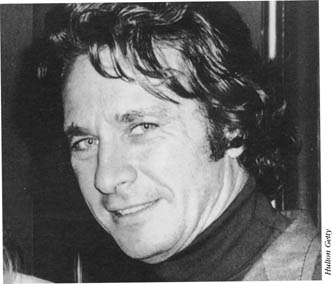
One of the most adaptable film music composers, Maurice Jarre wrote memorable scores for memorable movies.
The French-born composer Maurice Jarre, father of electronic pop performer Jean-Michel Jarre, earned himself a major place in the history of the Hollywood film score, most notably for his work on the sweeping epics of British film director, David Lean. As a highly successful commercial composer, Jarre created simple, melodic, but memorable work, while operating within the restrictive demands of the cinema, where the music must be both generally appropriate and must fit the action every second. Jarre went much further, however, creating popular music that transcended the films for which it was composed—as “Lara’s Theme,” for David Lean’s classic, Doctor Zhivago, shows.
Born in Lyons, France, on September 13, 1924, Jarre studied at the University of Lyons, the Paris Sorbonne, and the Paris Conservatory. During the 1950s, he built up a formidable reputation composing scores for around 40 French films, including those of director Georges Franju. His first American film score was for the war epic, The Longest Day (1962), and in spite of writing a successful ballet—Notre Dame de Paris—around this time, he decided to make the move to Hollywood and concentrate on film music.
Hollywood success was instant—Jarre won his first Oscar for scoring David Lean’s classic, Lawrence of Arabia (1962), and went on to score all of Lean’s films and win two more Oscars in the process, for Doctor Zhivago (1965) and A Passage to India (1984). “Lara’s Theme” from Doctor Zhivago was a big hit for pianist Roger Williams in 1966, just as the main theme for Lawrence of Arabia had been for piano duo Ferrante and Teicher. Further outstanding work includes scores for Ryan’s Daughter (1970, another Lean film), Witness (1985), Fatal Attraction (1987), Dead Poets Society (1989), and Ghost (1990).
One of Jarre’s hallmarks was a gift for infusing his music with evocative ethnic overtones. His scores for Doctor Zhivago, Lawrence of Arabia, and The Year of Living Dangerously (1983) are three major examples, where the music conjures up Russia, Arabia, and Indonesia respectively. In No Way Out (1987), which concerns a U.S. Government cover-up and efforts to shift blame to a Russian spy, the opening music—march-like in tone but with a Russian folk-song theme—hints effectively at both elements in the drama.

One of the most adaptable film music composers, Maurice Jarre wrote memorable scores for memorable movies.
Jarre’s very finest work, however, is arguably for the film, Jacob’s Ladder (1990), a powerful drama that draws subtle, almost passive, support from the score. The music is often of a romantic, almost sentimental, style, and Jarre creates a memorable chamber-music effect from using exclusively electronic instruments. Throughout his career Jarre continued to write concert pieces, as well as opera and ballet music, and this lent his film work a depth and range that raises him above so many other film composers of the time.
Richard Trombley
SEE ALSO:
CHAMBER MUSIC; ELECTRONIC MUSIC; FILM MUSIC; OPERA.
FURTHER READING
Marmorstein, Gary. Hollywood Rhapsody: Movie Music and Its Makers 1900–75 (New York: Schirmer Books, 1997);
Prendergast, Roy. Film Music- A Neglected Art (New York: W. W. Norton, 1977).
SUGGESTED LISTENING
Dead Poets Society; Doctor Zhivago; Jacob’s Ladder; No Way Out; A Passage to India.